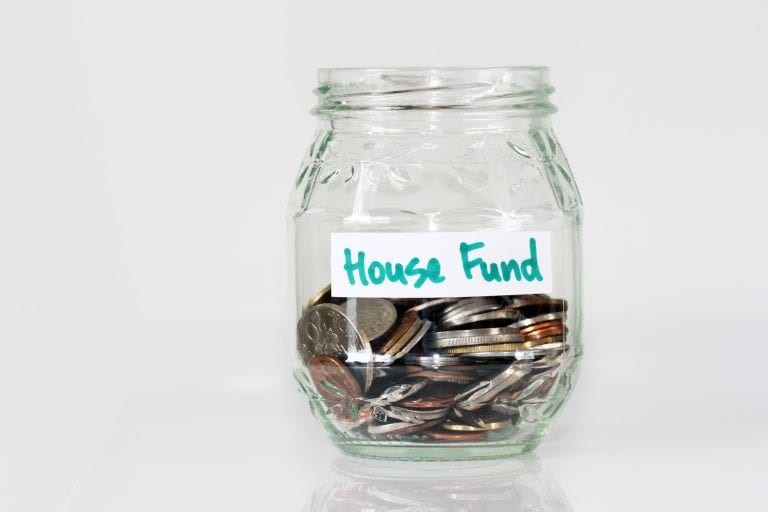How much savings should I have at 40? 3 ways to figure out if you are on track.
Are you nearing the big 4-0 and pondering your financial milestones?
If the question ‘How much savings should I have at 40 UK’ is keeping you up at night, you’ve landed in the right place.
In this riveting blog post, we will unravel the magic number you should be aiming for and equip you with savvy strategies to bolster your savings.
Whether you’re a savings guru or just getting started, this article is your treasure map to financial security.
So, buckle up and get ready to embark on a journey that promises to transform your financial landscape. Read on to unlock the secrets to a prosperous life at 40 and beyond!

How much money should a 40 year old have saved?
Some of this depends on what life might have thrown at you.
If you are single and in a well-paid job, you can imagine you could have saved quite a bit.
However, if you are single, have a high-paid job but are spending it like there is no tomorrow, you could imagine you have very little to show for it.
If you are not in a well-paid job, things get more challenging, and saving becomes more of an aspiration than a reality.
Whether you got married, have kids, bought a house, got divorced and then remarried, made redundant or had a period of ill health and or received inheritances or not are all going to play a part in your savings.
Whatever events in your life combined with your financial habits will likely be reflected in your current savings amount.
Yes, that’s right; your habits will also have played a key role in your savings.
What’s your process for saving money?
- Do you look for bargains?
- Only buy what you need and less of what you want?
- Do you have a savings habit, i.e., you do it no matter what every month?
- Are you tracking your net worth, have a budget or spending plan?
- Have you got written goals that you want to spend the money on?
- Do you follow your parents, friends or other methods to become wealthy or not?
- Do you know how much is enough?
All of these and others might well have helped you to accumulate savings. The lack of the above may also have a place in why you don’t have any savings.
Where should I be financially at 40?
You could have done a few things to have made your financial position a lot better. If you are not already, they may be something you want to look at asap.
Knowing and understanding your net worth
By now, you will ideally have a financial tracking process in place. Something that is telling you what is coming in and going out. And what all this is adding up to.
You can use your bank account or an app* to help you track where it all goes.
It would be useful be able to identify your net worth at 40. This will give you an indication of how things are going. Not necessarily whether it’s good or not as covered above, everyone has their own story but at least tell you what it has all added up to.
Add all your positive accounts up minus your debts = your net worth.
Living within your means
Yes, this definitely sounds boring, but it is something you probably need to be doing by now.
Living within your means is one if not the vital components of saving money and building wealth. Without a gap in your spending and income, you can never pull away from the gravity of a zero-bank balance.
In fact, the pull of financial gravity and easy access credit will take you back into the ground below zero and into increasing debt.
Tracking your spending and deciphering between needs and want could help with living within your means.
Or it might mean you need to increase your means.
Budget or Spending plan
Some of this is about tracking what is going on but also where you want your money to go.
Has every £$€ got a job to do? Including going towards saving.
By having a spending plan, it makes your actions and spending more conscious. Hopefully helping with cutting out unnecessary costs and directing more money to the things you really love, need and want while adding to your net worth.
Emergency fund
By reaching 40, you should have a good idea that sh!t happens fairly regularly. In 2020 you will have seen that it can also happen globally.
An emergency fund can help ride out some of the common emergencies that happen over 40 or so years
- House or car repairs
- Redundancies
- A new manager or company direction which doesn’t suit you.
- Prolonged illnesses
A common suggestion is 3-6 months of living costs in an easy-access cash account. Depending on your line of work and appetite for risk, you might want to have more than this.
Some protection in place
Having some form of insurance in place can help you keep the wealth you have built up so far and or protect you from losing what little you have if any.
Typical insurance’s many of us have
- Home
- Contents
- Travel
- Car
Depending on your profession, you may also have professional-level insurance in place.
While many of us have insured our stuff, there may be a gap in insuring ourselves. Remember that you are the golden goose that keeps laying golden eggs (or earning a salary).
Depending on your circumstances and who is dependent on you, you might want to consider
- Life insurance
- Income protection
- Critical illness
One or all might also prevent the worst-case scenario from becoming a disaster for those around you.
Retirement savings
Yeah, you could probably do with some of these by now. If you have been working for 20 or so years, you hopefully have also been saving into a company pension.
A quiet word though – your house or business is not a pension unless you know exactly when and for how much you will sell them for? Otherwise, you have no idea how much money you will have when it comes to selling and retiring on the profits.
Written goals
Yep, good old pen and paper. You could really do with some written goals now, whether they are about money, travel, education, friends and family, lifestyle or romance it’s probably time to set a bit of a direction.
If you haven’t got any plans and no savings, you might find that these are somehow connected.
Without a few ideas of your ideal direction, the more significant the chance of drifting in the wrong direction there is.
If you don’t have and ideas what to spend your money on in the near, medium, and long term, you probably won’t start saving, as you have nothing to spend your savings on.

How much savings should I have at 40?
Should you have any savings at all, I hear you say? Isn’t having savings showing a lack of imagination on how to spend money?
Nope, I would suggest that having some savings would likely be a good idea, even if only for the financial reasons, i.e., an emergency fund would be handy in case a global pandemic arrives and closes most workplaces down, could happen, I guess.
“Anyone who lives within their means suffers from a lack of imagination.”
Oscar Wilde”
Here are a few ideas for measuring how you are getting on
1. A multiple of your salary
A study by Fidelity has suggested a way to discover how much savings you have by what age to retire at 67.
Drum roll, they suggest that you need at least 1x your income by age 30, 3x by 40, 6x by 50, and 8x by 60. What YOU need might be different given your personal needs and lifestyle, but these are suggestions for what you could be aiming for.
| How much you should have saved by age | Your income saved amount |
| How should you have saved by 30 | 1x |
| How should you have saved by 35 | 2x |
| How should you have saved by 40 | 3x |
| How should you have saved by 45 | 4x |
| How should you have saved by 50 | 6x |
| How should you have saved by 55 | 7x |
| How should you have saved by 60 | 8x |
| 67 when you can retire | 10x |
When you plan to retire, i.e., before or after you receive a state pension and the type of lifestyle you want to have in retirement might be other factors that raise or lower the amount you need to save.
Either way, the table above indicates that you need a fair amount saved at each age group.
If you are already behind on these suggestions, you have a few options to consider
- Ignore the problem and hope it goes away.
- Hope that your luck changes and a windfall is on its way
- Take action now to try and catch up.
2. The 4% rule
Another option to calculate how much savings you might need at 40 is the 4% rule of thumb.
4% represents the safe withdrawal rate you can use from your savings and investments for early or conventional retirement ages.
Just withdrawing 4% each year could, in theory, be small enough for you to be able to live off it forever.
Let’s say you spend £$€30k a year. If you had 25 X £30k, you would have a fund of £750,000.
4% of £750,000 = £30k.
If your £750,000 was invested in a low cost globally diversified index fund and could return 5% a year net of inflation (a reasonably modest return but not guaranteed). Then by withdrawing only 4% a year, it would, in theory, run and run forever (although in the case of forever a lot could happen in that time)
How close are you to having 25 x your yearly spending? This will indicate how close you are or how much more you might need to save.
Why not go for financial independence and make work optional asap? Early retirement might be a real option with a bit of hard work.
3. The Millionaire Next Door net worth calculation
A great book by Thomas J Stanley The Millionaire Next Door detailing how ordinary Americans have reached Millionaire status through good financial habits including, high savings rates, modest lifestyles and continuous investing.
The formula is used to calculate if you’re a prodigious accumulator of wealth or an Under accumulator.
Your age X your household income (minus any inheritances) / 10 = your “expected” net worth
So, let’s say you earn £30k a year.
40 years X £30k / 10 = £120,000 is your expected net worth. if you have this or more minus inheritances, you’re a prodigious accumulator of wealth. If not, you are an Under accumulator of wealth.
FAQ: How much savings should I have at 40 UK?
How much money does the average 40 year old have?
As of 2023, the average 40-year-old in the UK has approximately £42,278 in savings.
This figure is based on data from NimbleFins and represents the average net financial wealth for individuals in the 40 to 44 age group.
It’s important to understand that this is an average amount, and individual savings can vary widely based on factors such as income, expenses, and saving habits.
Additionally, this amount includes both physical wealth and financial wealth. Having substantial savings by the age of 40 can be beneficial for financial security and achieving long-term goals such as buying a home or planning for retirement.
How much net worth should I have at 40?
The amount of net worth you should have at 40 can vary widely depending on various factors including your income, expenses, investments, and financial goals. However, here are some general guidelines:
Rule of Thumb: A common rule of thumb is that by age 40, you should have a net worth equivalent to about three times your annual salary. For example, if you earn £50,000 per year, you should aim to have a net worth of around £150,000 by the time you are 40.
Retirement Savings: It’s recommended to have saved a significant amount towards your retirement by age 40. Some financial experts suggest having at least three times your annual salary saved in retirement accounts by this age.
Debt Reduction: By the age of 40, it’s advisable to have reduced high-interest debts such as credit card debts and personal loans. Having less debt can positively impact your net worth.
Investments and Assets: Your net worth at 40 can also be influenced by investments and assets such as property, stocks, and bonds. Investing wisely can help increase your net worth over time.
Personal Goals: Your personal financial goals and lifestyle choices will also play a role in determining how much net worth you should have at 40. For example, if you plan to retire early or have children attending university, you may need a higher net worth.
Everyone’s financial situation is unique, and these are general guidelines. Consulting a financial planner or coach for personalized financial planning may well be very useful.
Summary: How much savings should I have at 40 UK?
How much savings you should have at 40 depends greatly on your goals and when you would like to realise them.
At 40, a fair amount of water has probably passed under your bridge, ups and downs, mortgages, births and deaths all affecting what you would like to do and see as possible.
A few calculations to give you an idea of what good might look like
- A multiple of your salary. 1x your income by age 30, 3x by 40, 6x by 50, and 8x by 60
- Where are you towards the 4% rule or 25% of your current/ideal lifestyle expenses?
- The millionaire next door calculation: your age X your salary / 10 = your “expected” net worth
Remember, these are all potential indicators of how much savings might be helpful to at 40.
They are, however, not necessarily what YOU need or could need to live the lifestyle you want now or in the future.
You might need more or less depending on your goals, starting point and when you want to work to become optional or stop altogether.
Anyway, those are my thoughts on how much savings should I have at 40 UK?
Good luck out there.
Need a Helping Hand with Your Finances? 🤝💰
If you’ve made it this far, congratulations! You’re already taking steps towards a healthier financial future. But maybe you’re feeling a bit overwhelmed. Maybe the thought of budgeting, saving, and investing still makes you break out in a cold sweat. Don’t worry, you’re not alone, and help is available.
At Financially Happy Money Coaching, I understand that money isn’t just about numbers. It’s about emotions, behaviours, and life choices. That’s why we’re here to help you take the stress out of money and build wealth in a way that aligns with your values and lifestyle.
Whether you’re just starting out on your financial journey or you’re looking to take your finances to the next level, we’re here to guide you every step of the way. I’ll help you understand your financial behaviours, set realistic goals, and create a personalized plan to achieve those goals.
So, why wait? Start your journey towards financial happiness today. Remember, the best time to start was yesterday. The second best time is now.
Click here to schedule your consultation and let’s make your money work for you, not vice versa. 💪💰
Remember, financial freedom isn’t a destination; it’s a journey. And every journey is easier when you have a guide. So, let’s embark on this journey together and create a financially happy future. 🚀💸






